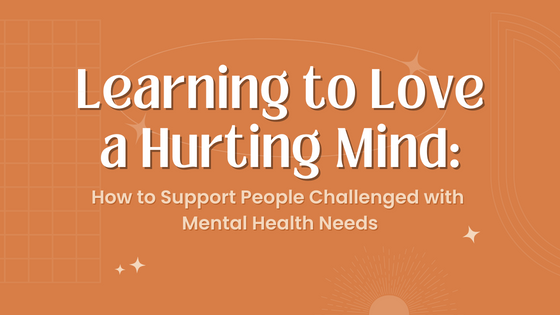Warning: If certain mental health topics like su!c!de, $elf-h@rm, or e@ting disorders trigger you, please be aware that this post mentions them. There is no pressure to read this, and your health and well-being come first. Please take care of yourself and your needs.
These stories are all true, but I will use different names of the people I spoke to for anonymity’s sake.
Hannah was a young woman suffering from severe depression. There was a length of time when each day held the struggle of getting out of bed and practicing basic self-care, like brushing teeth or showering. Even when she did find the motivation to leave her room, she wouldn’t eat much or socially engage with friends or family. All her usual hobbies no longer sparked joy, and she felt a continual brain fog and had a dim, negative outlook on the world.
After a few weeks of social withdrawal, a friend reached out to her and mentioned what he was seeing. He offered her the opportunity to express anything that was on her heart, and even though she refused the offer, he made sure to tell her that that was okay and that he would listen when she was ready. Every day, he would send a check in text or message to let her know that he was still thinking about her and concerned. And, sure enough, he was the first person that she spoke to.
A few weeks after talking to him, Hannah called a mental health clinic to schedule a psychotherapy appointment. Working together with her therapist regularly, Hannah began to redevelop healthy habits and address her needs, but she credits much of her recovery to the friend that first expressed his concern. She calls him her “motivation to make a change.” She said that he empathized with her while also acknowledging her individual struggle which was the first thing that made her feel seen. He proved to her that there were people that would help her without judging her.
Now, Justin was a young, transgender-identifying boy with an eating disorder. Combined with symptoms of anxiety and depression, his eating habits spiraled out of control when he began to hit puberty. Whenever he looked in the mirror, he only saw the female characteristics that he was so desperate to be rid of so that he would fit in with the other boys in middle school and gain acceptance. Still in the closet about his identity, he struggled with addressing the challenge because he feared the backlash of his family and his peers, so he continued with his anorexic habits as he believed that they curbed his dysphoria and discomfort in his own body.
When he began to realize that his weight and eating habits were damaging his body to a point almost beyond repair, he gave himself the opportunity to open up and seek out support. He came out as transgender and actively took a role in his own healing. He admits that healing and recovery have been difficult and non-linear, but he is now “leaning into the support” that he is offered by both professionals and non-professionals alike.
Justin would like to say that “every one of us deserves to know that there’s more out there than our disorder, that we’re worth so much more than we believe, and that we will grow to learn and love and accept ourselves for who we are.” He is a shining example of motivating himself into a healthier lifestyle once he had the safe space and freedom to voice his struggle and needs.
And finally, I would like to tell my own story. Half of my journey into mental health advocacy has been opening up about my experience and learning how to provide empathy through doing so. I hope that I can be an example for you and others when it comes to embracing mental health challenges and being willing to share an experience.
For many years through my childhood and adolescence (and even my young adulthood), I had an extreme fear of failure. Though I might not have been able to verbalize it or even consciously acknowledge it, this fear formed the base of many of my mental and emotional habits. It sparked thought patterns that told me that my worth was determined by my productivity and by the quality of said productivity. I quickly became a perfectionist to the extreme. By the time I reached high school, I had developed an anxiety disorder and a depressive disorder because I had lost control over the expectations that I set for myself and, more specifically, the responses to my failures and shortcomings.
When these habits finally boiled over, I fell into a deep depression. I experienced suicidal ideation, thoughts of inflicting self-harm, and severe anxiety attacks. These things threw a wrench into my plan to serve in the US Navy because such a mental health diagnosis disqualified me from service. This triggered even more anxiety and depression and feelings of failure. Only upon pursuing help from a licensed therapist did I begin to recover.
We focused on changing my perfectionist habits and impulses, as well as redirecting negative thoughts and self-talk towards more constructive habits. She coached me through learning how to ask for and accept help and move forward from events that triggered strong perfectionist responses. Over a year and a half, I have made so much progress and have not relapsed in many months. Most importantly, I have rediscovered my support system and who helps me grow and move forward with my mental health challenges, and I can say with much firmness, I cannot do it alone.
The theme across all three of these stories is community. Each of us found one or two ordinary people to encourage us and to support us through our recovery. They were 80% of the reason why we are where we are today with regard to our mental health journeys. In finding our community and accepting them, we found healing and hope.
Thank you, thank you, thank you. Thank you for reading everything this week and engaging with my project. I pray that God makes it fruitful and that He blesses you in any endeavor you take on with all your new knowledge. Again, thank you. My gratitude truly knows no bounds.
– Maria Lotti, YES Intern

